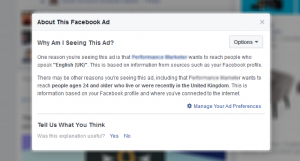Even Queen Elizabeth’s gloves have been transformed by the pandemic. For more than 70 years, the British monarch’s favorite glove-maker has been Cornelia James, and she wears the gloves at most public events. Now, to keep up with the global pandemic, the brand has just updated its classic cotton gloves with an antiviral coating. The $120 gloves are treated with a substance called HeiQ Viroblock, which has been shown to kill the coronavirus in 30 minutes, and they can be washed 30 times before it wears out.
It’s just one of countless antimicrobial products to flood the market recently, including bags, masks, and clothes. And in the case of these Cornelia James gloves, consumers seem to be stocking up: The brand is now restricting orders to two pairs of antiviral gloves per person to keep up with demand.
But before you rush out to dress yourself from head to toe in an antimicrobial outfit, you would be wise to consider: Do these products actually protect you, or are they just exploiting your anxiety to sell you expensive products you don’t need? The answer, like everything coronavirus-related, is complicated.
Uncertainty over how the virus spreads
To figure out whether antiviral products are worth the expense, it is important to understand how the virus spreads, but that’s not so clear-cut. According to the Centers for Disease Control and Prevention, there has not been a single documented case of a person getting sick with the coronavirus from a contaminated surface, which would seem to preclude the need for products treated with antiviral substances. And yet, at the same time, the agency offers lots of recommendations about disinfecting surfaces to reduce the spread of COVID-19.
On the surface, this seems like conflicting information. But Mark Shrime, a professor of global health and social medicine at Harvard Medical School, explains that it isn’t. While we like to think of illnesses in black and white, Shrime says that there is actually uncertainty when it comes to understanding all diseases, and particularly with COVID-19, so sometimes it makes sense to be extra cautious. “Remember, we’ve only known about this virus for eight months, and we’re still learning about it,” he says. “Science exists in a shroud of uncertainty, and as scientists, we’re comfortable with the fact that the answer is sometimes not yet clear.”
Alvin Tran, an assistant professor of public health at the University of New Haven’s School of Health Sciences, points out that just because there hasn’t been a documented case of transmission from a surface doesn’t mean it hasn’t happened or cannot happen in the future. Tran points out that part of the reason we hear more about people getting infected from direct contact with others is that it is easier to track. “It is much easier to trace the transmission of the disease from person to person,” says Tran. “It’s much harder to identify what object someone touched that may have infected them.”
Good hygiene is never a bad idea
Shrime points out that maintaining good hygiene when it comes to touching surfaces is a longstanding pillar of public health. Disinfecting frequently used surfaces such as doorknobs and light switches, and frequent handwashing, have been shown to reduce the transmission of other respiratory illnesses. “We know that washing your hands and keeping surfaces clean are simple, inexpensive practices that curb the spread of respiratory illnesses, so they’re worth doing, even though we now believe that the most common forms of transmission are from person to person,” Shrime says.
Tran also says that being careful about touching surfaces may help people avoid getting other illnesses, such as the common cold and the flu, which could overload a healthcare system that is already strained due to the coronavirus pandemic. “This is particularly important as we enter flu season,” he says.
You don’t need to buy anything to practice good hygiene
But just because we need to be careful about what we touch doesn’t mean that we should necessarily invest in these products. For one thing, we don’t know if they work. “Unlike handwashing and disinfecting surfaces, these new products haven’t been tested at all,” says Shrime. “We know that these simple techniques are effective; we have no idea whether there is an added benefit to these antiviral products. And indeed, we don’t know if they might actually cause harm.”
Both Shrime and Tran use the example of antibacterial soap, which was designed to make handwashing even more effective than using regular soap. But years after the products hit the market, evidence emerged that antibacterial soaps actually have negative effects, because they kill off good bacteria and they make certain medications less effective. Now, the FDA recommends against using these soaps. Antiviral products work differently from antibacterial soap, but we still don’t know what side effects these products might have.
Even if antiviral products are harmless, you’ll likely be paying a lot for them. And indeed, Shrime points out that it is easy for brands to exploit consumers’ anxiety to sell expensive products with no proven benefit. “People are capitalizing on our fear of this pandemic,” he says. “Ultimately, you’re going to get the most benefit from doing the simple things, like washing your hands and wearing a mask.”
Fast Company , Read Full Story
(56)
Report Post




